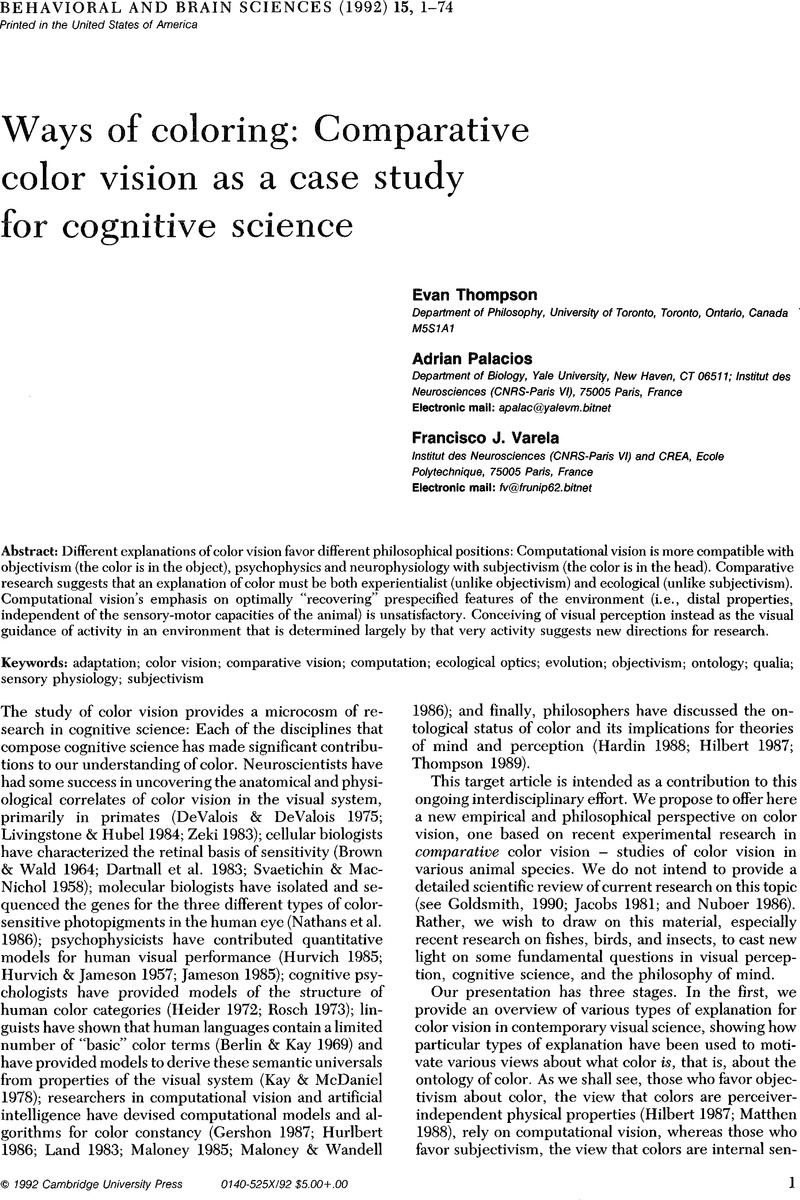Peitsch, D.,
Backhaus, W. &
Menzel, R. (
1989) Colour vision systems in hymenopterans: A comparative study. In:
Neural mechanisms of behavior, ed. J. Erber, R. Menzel, H.-J. Pflueger & D. Todt. Proceedings of the 2nd International Congress of Neuroethology, September 10–16. Thieme. [WB]
Google Scholar 